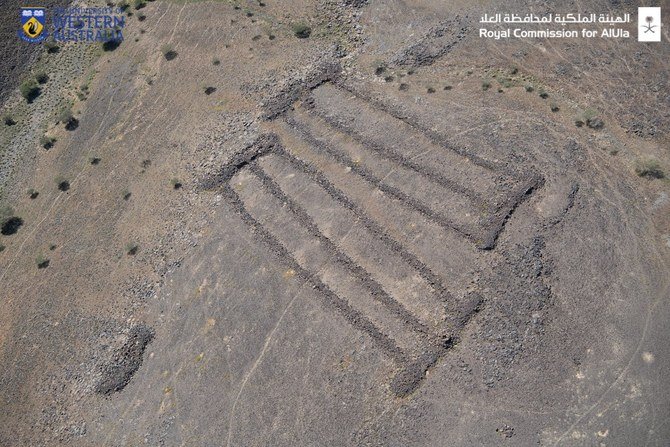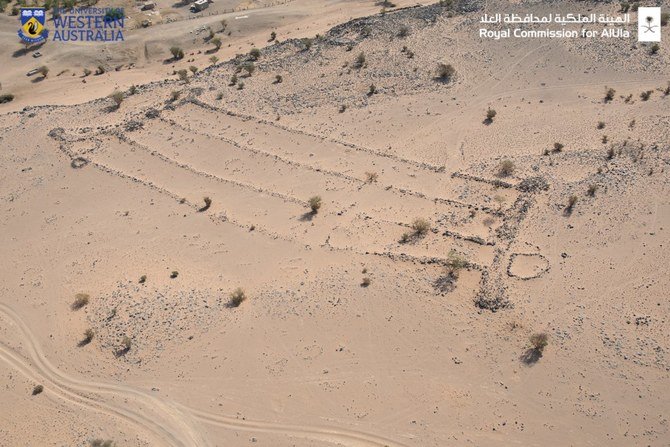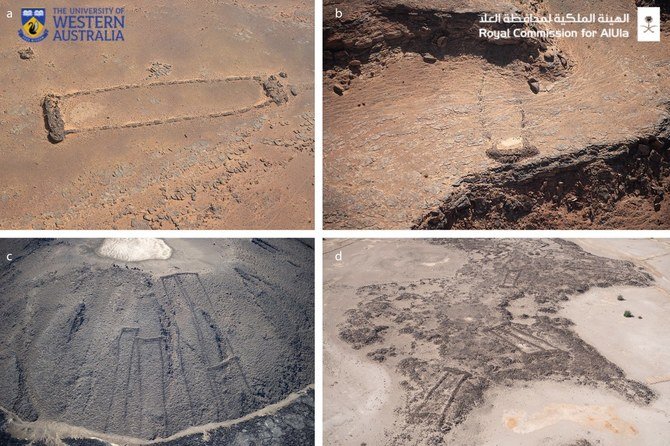





Arab News
RIYADH: Over 1,000 prehistoric rectangular stone structures have been revealed as part of an archeological discovery in northwestern Saudi Arabia, and are believed to be among the earliest stone monuments globally.
'The mustatils: cult and monumentality in Neolithic north-western Arabia' is out today. This work is part of the University of Western Australia's @UWAresearch work in #AlUla and #Khaybar as part of @RCU_SA archaeological program. Download here: https://t.co/dL1KYq21cs Thread 1/ pic.twitter.com/xvUFkvin2C
— AAKSA (@aaksa_project) April 30, 2021
The huge Neolithic structures are more than 7,000 years old, Saudi Minister of Culture Prince Badr bin Abdullah bin Farhan said in a Twitter post.
The Royal Commission for AlUla (RCU) renamed the discovery as mustatils, the plural form of the Arabic term for rectangles.
Each mustatil of the structures consists of two thick walled ends, connected by two or more long walls to create a series of giant rectangle courtyards, ranging in length from 20m to over 600m.
The base of the mustatil has circular/semi-circular cells constructed outside its main entrance.
The study revealed that around 1,000 of these mustatils cover an area of 200,000km² and appear to be very similar in their forms, suggesting they are all from the same time period.
The work on this discovery is part of the University of Western Australia’s work in AlUla and Khaybar provinces as part of archaeological program by RCU.